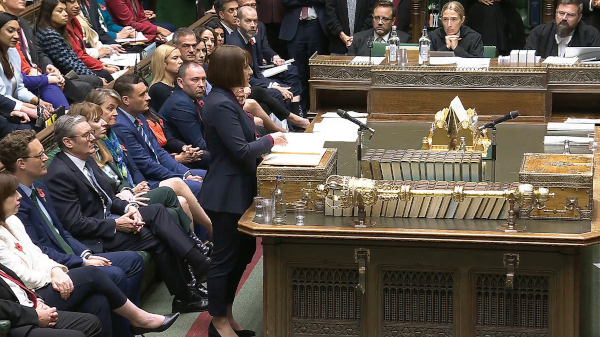Chancellor Rachel Reeves has confirmed rises to the minimum wage and employers’ National Insurance contributions, piling further pressure on council budgets.
The minimum wage for over-21s will increase from April by 6.7% while councils' National Insurance contributions will rise from 13.8% to 15% by April.
Councils have said that supporting those on the lowest pay is not only fair but improves the motivation, loyalty, productivity and retention of hard-working staff.
However, the increase in the minimum wage from £11.44 to £12.21 per hour – worth up to £1,400 a year for a full-time worker – will make balancing budgets harder.
The increase – more than three times the current rate of inflation – comes after Labour changed the remit of the Low Pay Commission so that for the first time it took into account the cost of living when it agreed wages for the lowest paid.
Ms Reeves said the wage increase would ‘support people with the cost of living' and ‘protect' workers.
On increasing employers' National Insurance contributions, Reeves said: ‘I do not take this decision lightly. I know there will be impacts of this decision beyond businesses too. In the circumstances I have inherited it is the right choice to make.'
She added opposing the National Insurance increase would lead to more ‘austerity, chaos and instability'.
The Government has not explicitly pledged to fund the National Insurance rise for councils but the sector's Departmental Expenditure Limit for 2025-26 will increase to £14.3bn, which includes an additional £1.3bn of additional grant funding for services.






